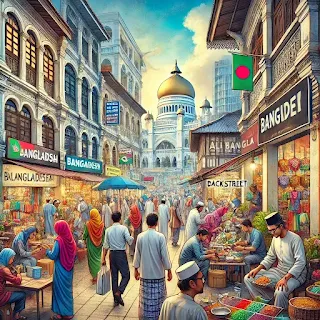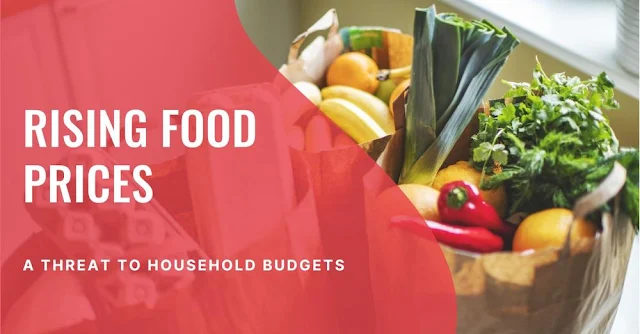BANDAR SERI BEGAWAN, SEPTEMBER 2024: Brunei’s economy is showing encouraging signs of recovery, according to the latest findings from the Annual Census of Enterprises (ACE) 2023.
Conducted by the Department of Economic Planning and Statistics (DEPS), the census reveals growth in the number of active businesses, particularly among small and medium enterprises (SMEs), which continue to be the backbone of the private sector.
This expansion offers an optimistic outlook for the nation's economic future, especially for business owners and the workforce.
In 2022, the number of active enterprises in Brunei increased by 1.8%, rising from 6,454 in 2021 to 6,570 in 2022.
While this growth may seem modest at first glance, nearly 98% of these businesses are micro, small, and medium enterprises (MSMEs), a clear indication of their dominant role in the country's economy.
Medium-sized businesses saw the most significant growth, with a 4.7% increase, suggesting that many smaller enterprises are expanding their operations.
Micro-enterprises, those with fewer than five employees, also grew by 3.4%, further demonstrating resilience during challenging times.
The Wholesale and Retail Trade sector remains the largest sector in terms of the number of enterprises, representing 35.9% of all active businesses, with 2,359 enterprises.
This continued dominance points to a stable foundation for local commerce and consumer activities.
Furthermore, the Accommodation and Food Service sector saw the highest growth rate of any industry, increasing by 5.8%—a sign of recovery in the hospitality and tourism industries, which were severely impacted during the pandemic.
Meanwhile, the manufacturing sector, accounting for 10% of total enterprises, also experienced steady growth, reflecting its importance in driving economic recovery.
One of the most promising findings of the census is the increase in local employment within the private sector.
In 2022, the sector employed a total of 117,591 people, with Bruneians making up 57.5% of this workforce.
This marks a 2.8% increase from 2021, as more local workers found jobs, contributing to the country’s long-term goal of reducing its reliance on foreign labour.
At the same time, the number of non-local workers declined by 1.7%, highlighting a shift toward a more locally driven workforce.
This increase in local employment is particularly notable in sectors like wholesale and retail trade, professional services, and education, where Bruneians are increasingly playing a key role.
While employment numbers are on the rise, wages across different sectors present a varied picture. On average, private sector workers earned BND 2,096 per month in 2022.
However, certain sectors, such as Mining and Quarrying, provided much higher wages, with employees earning up to BND 8,130 per month.
In contrast, workers in agriculture, forestry, and fisheries earned the lowest average monthly salary of BND 770.
Despite these wage differences, the private sector’s total revenue reached an impressive BND 40.84 billion in 2022, a sharp increase of 28% from 2021.
This surge in revenue is led by the manufacturing sector, which contributed BND 18.05 billion, followed by Mining and Quarrying with BND 9.86 billion.
The Wholesale and Retail Trade sector also reported a revenue increase of 8.8%, underscoring the recovery in consumer spending.
For business owners, these findings reflect a positive trend. The continued growth in local employment and the rise in revenues indicate that Brunei’s private sector is on a solid path to recovery, with SMEs leading the way.
Government policies aimed at supporting SMEs and encouraging local employment are evidently paying off, as seen in the steady increase in the number of enterprises and the reduction in foreign labour dependency.
The growing revenues across key industries also suggest that businesses are generating higher returns, which could translate into more opportunities for reinvestment, expansion, and job creation.
At the same time, challenges remain for certain sectors. Construction and education, for example, saw a decline in employment and revenue, signalling the need for targeted interventions to stabilise these industries.
Nevertheless, the overall message from the census is clear: Brunei’s private sector is rebounding, with local businesses and workers playing a crucial role in the nation’s economic future.
For business owners, the time is ripe for seizing new opportunities, whether through expansion, innovation, or exploring new markets.
For the government, the report serves as a validation of efforts to strengthen local enterprises and employment, though continuous support and adjustments will be needed to ensure sustained growth.
As Brunei looks ahead, the findings from the ACE 2023 present a picture of hope and resilience.
The growth in SMEs, coupled with rising local employment and increasing revenues, points to a stronger, more diverse economy.
While challenges remain, the foundations for a more self-reliant and robust economic future are being laid, driven by the ingenuity and determination of Brunei’s businesses and workforce. (MHO/09/2024)



.jpeg)






